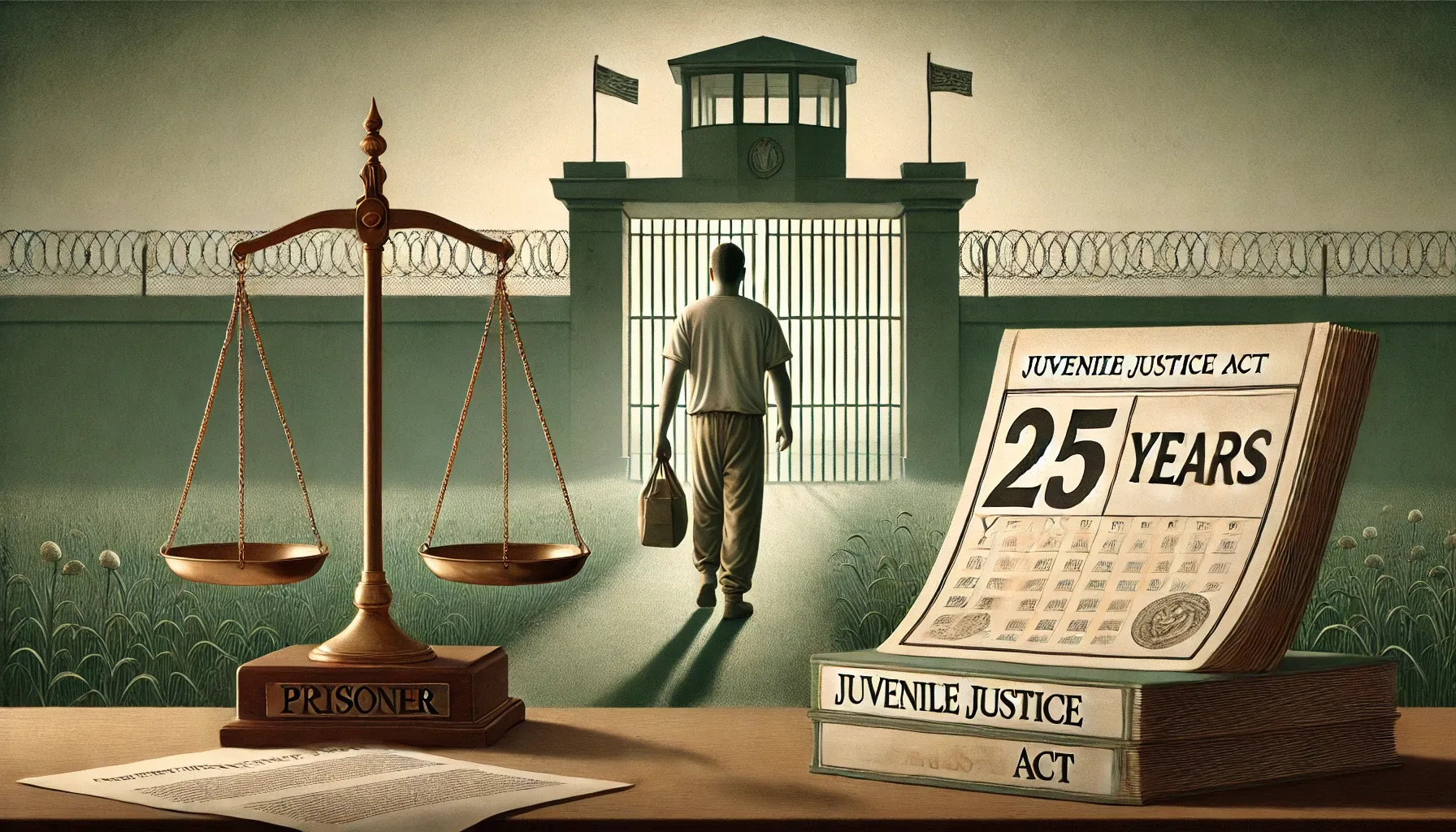The Supreme Court released Om Prakash after 25 years of incarceration, finding him to be a minor at the time of the offense. The judgment criticized repeated judicial errors and emphasized the application of the Juvenile Justice Act, directing proactive rehabilitation measures for the appellant.

In a landmark judgment on January 8, the Supreme Court of India ordered the release of Om Prakash, a prisoner who had been incarcerated for nearly 25 years, after finding that he was a minor at the time of the offense in 1994. The bench, comprising Justice MM Sundresh and Justice Aravind Kumar, criticized the judicial oversights in the case and directed proactive measures to ensure his rehabilitation and reintegration into society.
Background of the Case
- Conviction and Death Sentence:
Om Prakash was convicted of murder in 1994 and sentenced to death. Despite raising the plea of juvenility during sentencing, the trial court dismissed it based on his Section 313 CrPC statement, which recorded him as an adult, and evidence like possession of a bank account. Both the High Court and the Supreme Court upheld these findings. - Curative Petition and Mercy Petition:
- In a curative petition filed before the Supreme Court, Om Prakash produced a school certificate showing he was 14 years old at the time of the offense. The State of Uttarakhand confirmed this fact, yet the petition was dismissed.
- In 2012, his death sentence was commuted to life imprisonment by the President of India with the condition that he would not be released until he turned 60.
- Fresh Evidence of Juvenility:
- An ossification test and a medical certificate further corroborated that Om Prakash was 14 years old when the crime was committed.
- Information obtained under the RTI Act confirmed that minors could open bank accounts, disproving earlier grounds for dismissing his juvenility claim.
- In 2019, he filed a writ petition in the Uttarakhand High Court challenging the Presidential order and raising the plea of juvenility again. The High Court dismissed the petition, citing limited judicial review over Presidential orders.
Supreme Court Observations
- Failure to Acknowledge Juvenility:
The Court criticized the judicial handling of the case:- The reliance on the Section 313 CrPC statement to establish his age was erroneous. The statement, which indicated he was 20 years old during deposition, implied he was only 14 at the time of the offense.
- The High Court failed to consider Section 9(2) of the Juvenile Justice Act, 2015, which allows a plea of juvenility to be raised at any stage of legal proceedings.
- Judicial Errors and Injustice:
- "At every stage, injustice has been inflicted by the Courts, either by ignoring the documents or by casting a furtive glance," the judgment stated.
- The appellant lost 25 years of his life due to judicial errors, with no opportunity for reintegration into society.
- Relevance of Juvenile Justice Act, 2015:
The Court clarified that its judgment was not a review of the Presidential order but rather the application of provisions of the Juvenile Justice Act, 2015, which recognizes the appellant's right to seek relief as a minor.
Directions for Rehabilitation
- The Uttarakhand State Legal Services Authority was directed to:
- Identify welfare schemes for the appellant’s rehabilitation.
- Facilitate access to resources ensuring his right to livelihood, shelter, and sustenance under Article 21 of the Constitution.
- The State of Uttarakhand was tasked with assisting him in availing benefits under welfare schemes for released prisoners.
Court’s Observation
The Supreme Court ordered the immediate release of Om Prakash, stating:
- His imprisonment for 25 years due to judicial errors was unjust.
- His plea of juvenility, supported by conclusive evidence, entitled him to relief under the Juvenile Justice Act.
- The appellant deserved a chance to reintegrate into society with dignity.
Representation
- For the Appellant: Senior Advocate Dr. S. Muralidhar, with legal assistance from Project 39A of National Law University Delhi.
- For the State: Additional Solicitor General KM Nataraj.
Case Title : Om Prakash @ Israel @ Raju @ Raju Das v State of Uttarakhand





